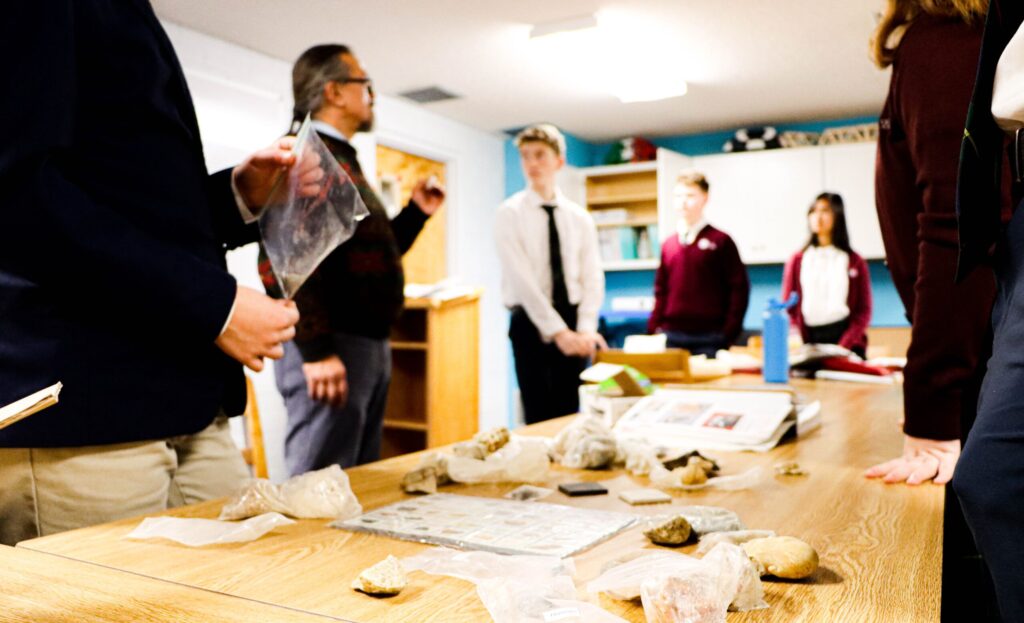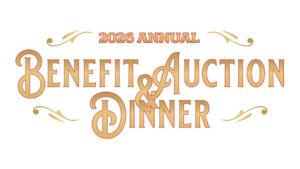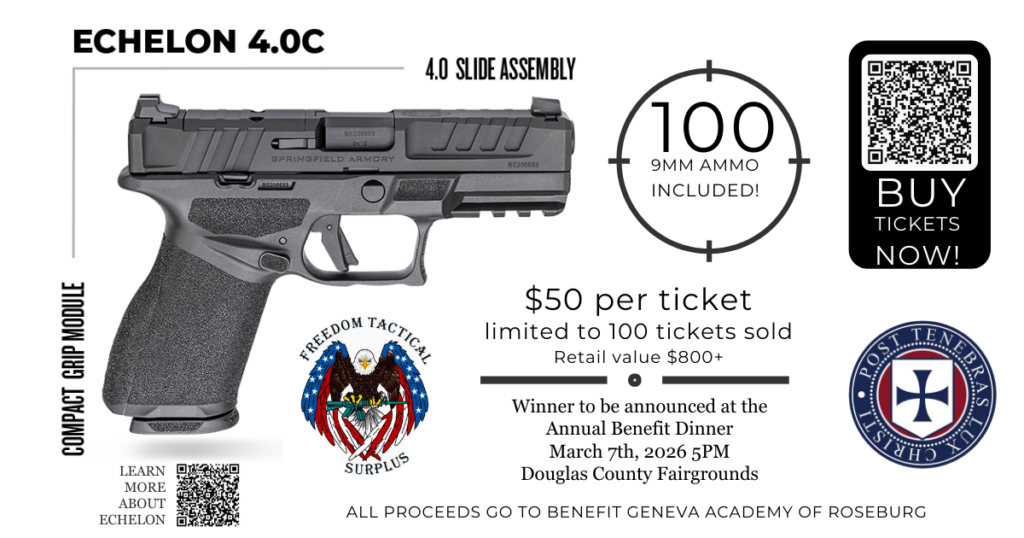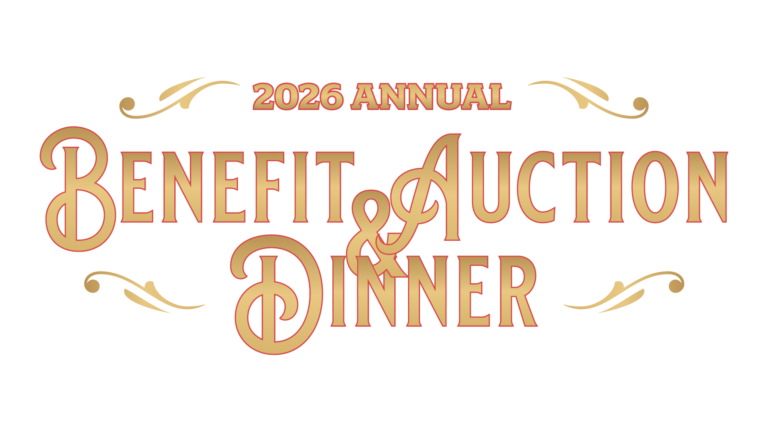Logic
Logic | 7th-8th
Discover the ancient and future form of education that challenges us to glorify God with our minds and restore a Christian culture to our churches and homes.

Your child will learn to love learning for his or her whole life.
Logic Curriculum
Logic is the art and science of reasoning. While man’s reason is not the ultimate source of truth, skillful reasoning is a tool that every Christian student should learn in order to be able to give a good defense of the faith (I Peter 3:15). The Apostle Paul regularly reasoned in the synagogues and before rulers in order to persuade them of the truth of the Way of Christ (Acts 17:2, 17:17, 18:4, 18:19, 19:8, 24:25). He told his judge Festus, “I am not mad, most noble Festus, but speak the words of truth and reason.” God Himself uses reason in the salvation of His people: ” ‘Come now and let us reason together,’ Says the LORD, ‘Though your sins are like scarlet, they shall be white as snow; though they are red like crimson, they shall be as wool.’ ” (Isaiah 1:18)
If God Himself uses reason, and if His apostles use reason, then reason is a God-given gift. As Christians seeking to fulfill the dominion mandate, we wish to thoroughly equip students to use their minds to God’s glory. Formal logic teaches students how to do this. Students learn to identify, analyze through the art of debate. It is an essential part of the trivium and the fruits of studying it extend into every field of thought and knowledge. For these reasons, we seek to teach it effectively and powerfully.
A brief note on behavior in debate; since students in the Logic stage naturally want to debate and challenge, we seek to instill in students a sense of respect for the person they are opposing. “A gentle tongue breaks a bone” (Proverbs 25:15). One way to show respect for someone is in courteous speech. Another way is to seriously consider the arguments the other person is making, and to give a well-reasoned response. We seek to train students to do both of these things in debate to God’s glory.
BIBLE 1- PENTATEUCH AND HISTORY
Students will gain an appreciation for the historical and cultural context of God’s holy word by sustained and disciplined inquiry into the early history of Israel as recorded in the Pentateuch, and the books of history: Genesis, Exodus, Leviticus, Numbers Deuteronomy, Joshua, Judges, Ruth, the books of Samuel, Kings as well as the works of Ezra, Nehemiah and Esther.
Students will examine the Old Testament and covenantal background to the fulfillment of “the Law and the Prophets” in the coming of Jesus of Nazareth, the Son of God and promised Messiah, by doing the following:
Debate different Patristic interpretations of the text through progymnasmata writing exercises of Confirmation and Refutation and oral exercises of the formal dialectic
Find events in the text on geographical maps, and observing the change of maps over time
Locate events in the text on a timeline
Memorize the books of the bible in canonical order, and know appropriate hermeneutical strategies for the genre of writing being studied
Applying biblical concepts learned in class to real world situations, so that they will be prepared to apply them to unpredictable situations later in life
Engage in a sustained inquiry into the way to read the Old Testament types and shadows as fulfilled in Christ and the Gospel, as seen in a research paper
Pray these scriptures through the adoption of a habitual practice of morning and evening prayer, modeled on Lectio Divina
The student will academically study the same passages they pray, so that God’s Spirit will form both the head and the heart for lifelong love of God’s Word.
ANCIENT HISTORY & LITERATURE
Students will gain an appreciation for the early history of human civilization from creation to the time of Christ with specific attention given to the early history and development of including (but not limited to) Egypt, Assyria, Babylon, Persia, Mede, Greece and Rome and the Julian-Claudio Dynasty.
Students will also gain an appreciation for the early literature of human civilization from creation to the time of Christ with specific attention given to (but not limited by) the literature of Egypt, Assyria, Babylon, Persia, Mede, Greece and Rome and the Julian-Claudio Dynasty.
Students will engage in sustained and disciplined inquiry into these civilizations by doing the following:
Debate different historical interpretations of historical events and literature through progymnasmata writing exercises of Confirmation and Refutation and oral exercises of formal dialectic, Harkness Discussions, and Socratic Circles
Find events in the text on geographical maps, and observing the change of maps over time
Locate events in the text on a timeline and memorization of Geneva timeline for class
Apply insights from historical research to real world, so they will be prepared to apply them to unpredictable events in life
Students will spend extended time developing close reading skills in primary source historical material including but not limited to:
The Code of Hammurabi
The Histories, by Herodotus
The Early History of Rome, by Livy
Lives of Noble Greeks and Romans, by Plutarch
Cultivate close reading skills by reading great works of literature in the primary source, including but not limited to:
Selections of Egyptian Literature
The Epic of Gilgamesh and Enuma Elish
Ancient debate poetry
Selections from Hesiod’s Works and Days and Metamorphosis
The Iliad, by Homer
Greek tragedy and comedy
Last Days of Socrates, by Plato
Roman comedy and tragedy
Selections of Greco-Roman poetry
Teacher will also draw from resources including but not limited to Jackson Spielvogel’s Western Civilization: A Brief History Vol 1 to 1715 and Gore’s Historical and Chronological Context of the Bible
LOGIC AND COMPOSITION 1
This course will focus on argumentation in composition, with an additional emphasis on mechanics and grammar. Students will prepare for the written composition of arguments by studying categorical and hypothetical syllogisms, and also by engaging in disputations with their classmates. Then they will continue to refine these skills of argumentation in the third and fourth stages of the progymnasmata (preliminary exercises), which are chreia and confirmation/refutation. By doing so, students will develop skills in making and defending different kinds of arguments while also developing a copious vocabulary.
A successful student who finishes this course should be able to:
1. Recite from memory the heads of development and purpose for each of the studied forms.
2. Use the given heads of development to defend wise sayings.
3. Use the given heads of purpose to confirm or refute elements of narratives.
4. Recite and define the nine narrative components.
5. Identify sentence parts and parts of speech.
6. Identify and correct errors in spelling, grammar, and writing mechanics.
7. Identify given figures of rhetoric and incorporate them into assigned paragraphs.
8. Diagram simple, compound, and complex sentences that include prepositional phrases, modifiers, gerunds, infinitives, and participles.
9. Determine validity of categorical syllogisms.
10. Use the relationships of the square of opposition to paraphrase statements and arguments.
11. Track with the flow of arguments in a disputation in shorthand notation.
12. Recite Genesis 3 (ESV) from memory.
13. Type at least 25 wpm.
14. Be in the habit of effectively using an academic planner.
Texts used
Classical Composition by James Selby
Daily Grammar Practice 7 by Dawn Burnette and Judith Holbrook
The Holy Bible (ESV) by God **note: I will provide students with a copy of the ESV version of this chapter, so they don’t need to own an ESV Bible.
Keyboarding Essentials by Prentice Hall Publishing
SCIENCE 7: PHYSICAL SCIENCE FOR THE LOGIC STUDENT
This course introduces the discovery and study of physical laws of matter in preparation for more detailed study in subsequent years. Conceptual and mathematical understanding of physics will be stressed. Problem-solving skills, test-taking skills, time-on-task, problem-based learning, critical thinking situations, and activity and lab-based learning will be incorporated throughout the course. This course affirms historic Christian teaching about God’s creation while explaining alternative, evolutionary theories about causality.
Primary Text and Materials
Physics for the Logic Stage, 2020 Edition, Elemental Science, Inc., by Paige Hudson
Course Objectives
A successful student who finishes this course should be able to:
Have a deeper understanding of how physics and laws of nature impact their daily lives.
Use practical scientific skills to investigate, study, and explain the world around them, from a Biblical worldview
Enter into the spirit of scientific investigation and with it the attitudes of accuracy in thought and work.
Prepare students for further study in physics and chemistry.
Instill wonder and awe in students as they discover the intricate design, order and complexity of God’s creation
PRE-ALGEBRA
We will be using our foundation of arithmetic to build a solid structure upon which all of our future mathematical endeavors will rest. In this course, we will transition from the specific (arithmetic) to the general (algebra). Homer, M. (2009). Pre-algebra: Student text. Math-U-See.
A student who finishes this course should be able to:
Perform arithmetic operations quickly and without pencil and paper
Define the basic operations fluently
Perform operations with both the integers and rational numbers (on both sides of the number line)
Set up and simplify basic algebraic expressions
Solve for unknowns in formulas
Easily solve equations in one variable
Work with percentages, ratios and fractions
Write and solve equations for length, area, distance, rate, and time
Solve geometry problems involving triangles and 4-sided figures
LATIN I
After this year long course, the successful student will be able to:
Translate long narratives or passages of beginning or intermediate difficulty
Understand and discuss the history and customs of 1st century Rome
Begin the reading of the Vulgate Bible
Improve understanding and use of Latin grammar
Take the National Latin Exam
Show mastery of the third declension, third and fourth conjugations, and present, future and perfect passive participles
Competently use Latin grammars and dictionaries
The teacher developed curriculum draws on Latin in the Christian Trivium, by Gail Busby and Mary Harrington Vol 2 and the Cambridge Latin Series Short Latin Stories
Teacher developed curriculum including readings in Latin that will lead to the use of Latin in conversation and writing as well as translation. Please see Geneva’s Why Teach Latin for more information on the benefits of learning Latin.
CHOIR
Introductory Choral Music with the Kodaly method
Folk songs, hymns, patriotic songs, and Christian holiday works are introduced and practiced
ART
FOUNDATIONS OF ART
Introduction to the Foundations of Art students will learn about the elements of Art and Principles of Design, including a study in watercolor leaf painting, Audobon inspired colored pencil drawing, graphite self-portrait, Ceramic coil vases and face mugs. Students will also do further studies in the following:
Linoleum Printmaking
Bas relief Tiles
Rose window color wheel painting
Tempara Painting
Acrylic painting
One-point perspective
PE
Twice a week with exercises, stretching, and games
Emphasis on general fitness and cultivating lifelong habits of activity
BIBLE: ACTS AND EPISTLES
Students will gain an appreciation for God’s church by sustained and disciplined inquiry into the early history of the church as recorded in the Acts of the Apostles and the pastoral epistles including: Hebrews, James, 1 & 2 Peter, 1-3 John, and Jude.
Students will examine the early history of the Kingdom of Christ in this world, by doing the following:
Debate different Medieval interpretations of the text through writing exercises of Confirmation and Refutation and oral exercises of the formal dialectic
Become familiar with the medieval and classical practice of
ars dictaminis and appreciate insights able to be gained from scripture by attending to its rhetorical genre
Find events in the text on geographical maps, and observing the change of maps over time
Locate events in the text on a timeline and memorize Geneva Academy timeline for class
Memorize the Nicean and the Chalcedonian Creeds and recite or sing them as a class and individually
Applying biblical concepts learned in class to real world situations, so that they will be prepared to apply them to unpredictable situations later in life
Engage in a sustained inquiry into a conflict in early church history, as seen in a research paper based in the reading on early church history
Pray these scriptures through the adoption of a habitual practice of morning and evening prayer, modeled on Lectio Divina
The student will academically study the same passages they pray, so that God’s Spirit will form both the head and the heart for lifelong love of God’s Word.
Students will engage in a yearlong close reading of a teacher selected book on early church history, analyzing the doctrinal debates leading up to and resulting from the Nicaean/Chalcedonian orthodox heritage.
MEDIEVAL HISTORY & LITERATURE
Students will gain an appreciation for the cultural and material life of medieval civilization, from the time of the Julio-Claudian dynasty to the advent of the Reformation with specific attention given to the Carolingian renaissance and the rise and decline of the Holy Roman Empire and the Crusades
Students will gain an appreciation for the literature of medieval civilization from time of the Julio-Claudian dynasty to the time of the Reformation with specific attention given to the literature of medieval Europe
Students will engage in sustained and disciplined inquiry into medieval civilization by doing the following:
Debate different historical interpretations of events such as the Crusades through writing exercises of Confirmation and Refutation and oral exercises of formal dialectic
Find events in the text on geographical maps, and observing the change of maps over time
Locate events in the text on a timeline and memorize Geneva Academy timeline for the class
Apply insights from historical research to real world, so they will be prepared to apply them to unpredictable events in life
Explore different fallacies of historians and historiography (selections from David Hackett Fischer’s Historians’ Fallacies)
Students will spend extended time developing close reading skills in primary source historical material including but not limited to:
Church History, by Eusibius
Rule of St. Benedict, by Benedict or Nursia
Two Lives of Charlemagne, by Einhard and Notker the Stammerer
The Ecclesiastical History of Britain, by Bede
The History of the Kings of Britain, by Geoffrey of Monmouth
Primary sources related to the Crusades
Magna Carta and related documents
Selections from Domesday Book and Anglo-Saxon Chronicles and other primary source documents
Teacher will also draw from resources including but not limited to Jackson Spielvogel’s Western Civilization: A Brief History Vol 1 to 1715 and R.H. C. Davis’ A History of Medieval Europe
Students will engage in sustained and disciplined inquiry into the literature of medieval civilizations by close reading and debating the interpretation of great works of literature in the primary source, including but not limited to the following:
Confessions, by St. Augustine
Beowulf
Song of Roland
Saga of the Volsungs
Sir Gawain and the Green Knight
The Divine Comedy: Inferno
Shakespearean classics, such as Henry 5 or Macbeth
Ivanhoe or Adventures of Robin Hood
Selections from Canterbury Tales
The teacher will also draw from European Literature and the Latin Middle Ages, by Ernest Robert Curtius and other resources
LOGIC AND COMPOSITION 2
This course will advance the craft of argumentation in composition, with an additional emphasis on mechanics and grammar. Students will learn the fifth and sixth stages of the progymnasmata (preliminary exercises), which are common topic and encomium/invective/comparison. Additionally, students will be challenged to develop finer uses of syllogistic arguments and figures of rhetoric. They will also memorize some of the historical creeds of the Church.
A successful student who finishes this course should be able to:
Write compelling argumentative essays against groups of wrongdoers using the common topic form.
Write short biographies on historical figures.
Compose arguments of praise or condemnation against historical figures.
Incorporate syllogistic reasoning into written work.
Identify sentence parts and parts of speech.
Identify and correct errors in spelling, grammar, and writing mechanics.
Identify given figures of rhetoric and incorporate them into assigned paragraphs.
Diagram simple, compound, and complex sentences that include prepositional phrases, modifiers, gerunds, infinitives, and participles.
Recite from memory the following historical creeds: Apostle’s, Nicene, and Athanasian
Texts
Classical Composition by James Selby
Daily Grammar Practice 8 by Dawn Burnette and Judith Holbrook
The Apostle’s Creed
The Nicene Creed
The Athanasian Creed
Variety puzzles by Penny Press and Dell
LATIN II
After this year long course, the successful student will be able to:
Translate the Vulgate Bible with a high degree of accuracy
Read Latin references in academic books
Accurately recognize the subjunctive mood, gerunds, gerundives, and the six infinitives
Describe the logical beauty of the Latin language
Take the National Latin Exam
Explain the impact of the Vulgate through the Middle Ages and Renaissance
Competently use Latin grammars and the Castle Latin Dictionary
The teacher developed curriculum draws on Latin in the Christian Trivium, by Gail Busby and Mary Harrington Vol 3 &4
MATH – GEOMETRY (CLASSICAL AND INVESTIGATIVE)
INVESTIGATIVE GEOMETRY
Students will explore geometry and develop their logical reasoning skills by building geometric constructs, in the form trusses, and bridges, while applying deductive and inductive reasoning, and learning to build elegant proofs from beginning to end. The focus of this course will be on lines, triangles, polygons, various other geometric shapes, and of course proofs.
A successful student will be able to:
Build geometric constructions
Work with conditional statements
Apply inductive and deductive reasoning
Bisect lines and angles
Define congruence
Show that two lines are parallel
Identify quadrilaterals
Prove the Pythagorean theory in multiple ways
Produce a transformation
Work with the laws of sine and cosine
Prove that there can be only five regular solids
Define and work with secant and tangent
"Do not be conformed to this world, but be transformed by the renewal of your mind, that by testing you may discern what is the will of God, what is good and acceptable and perfect."

Announcements & Events
Check out the latest and upcoming events with the Geneva Academy family. From holiday’s to graduations to speech meets, and sports events, stay up to date!



